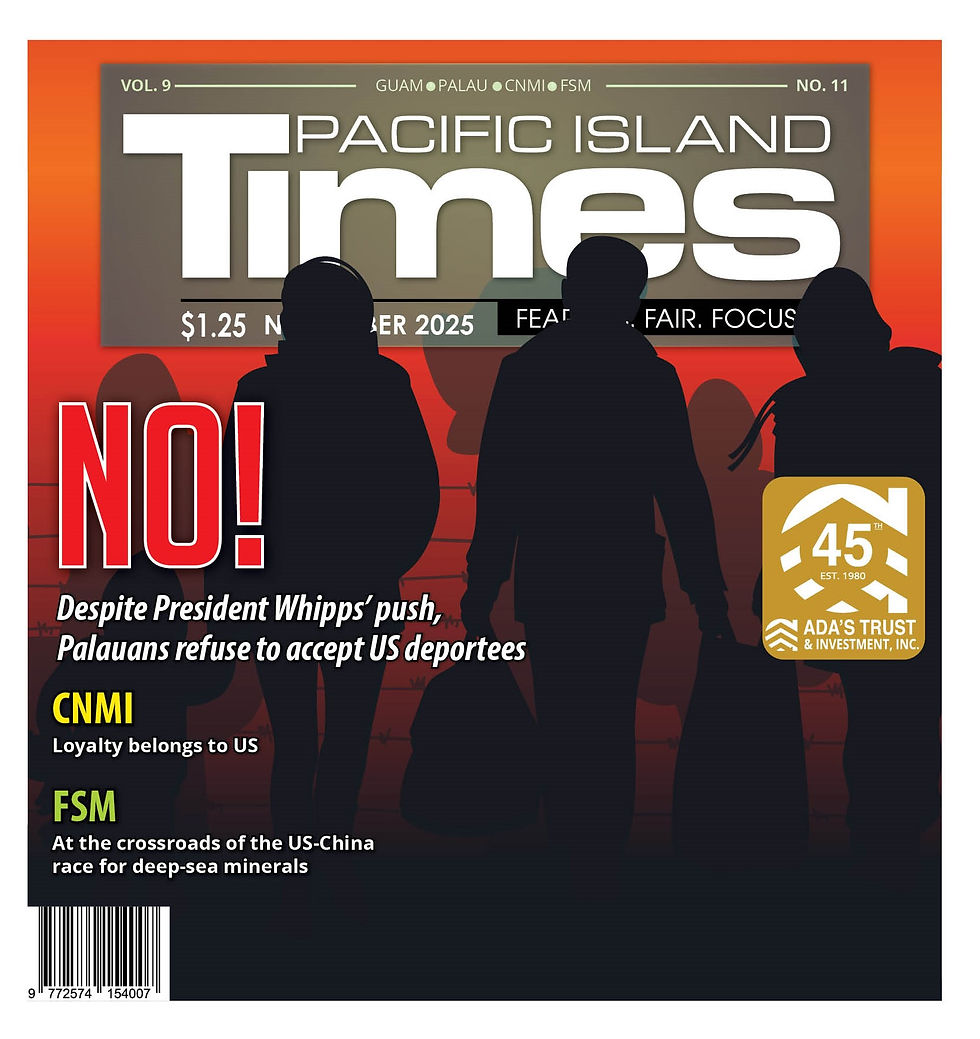US deep-sea mining policy: A dual provocation against ecology of Pacific island countries and international law
- Admin

- Nov 11, 2025
- 3 min read

By Rodney J. Muncy
In April, U.S. President Trump issued an executive order to bypass the International Seabed Authority's regulatory framework to promote deep-sea mining in the high seas. Its unilateral actions to destroy the oceans are not only a potential disaster for the global marine ecosystem, but also a blatant provocation against international law and the international order. It claims this move is to ensure the security of the United States' "critical mineral supply chain."
The U.S. is safe, but who will protect the safety of the Pacific island countries?
For the ocean-dependent island countries, Trump's executive order is undoubtedly a disaster. The ocean is our home, and engaging in deep-sea mining operations without mature technology is dangerous.
Deep-sea mining operations violently stir up ocean sediments, causing carbon from organic matter to reappear in the ocean, turning into large amounts of carbon dioxide and methane and releasing them into the atmosphere, exacerbating the greenhouse effect.
It’s abhorrent that the U.S. is pursuing deep-sea mining in circumvention of international rules and in disregard of the interests of the island countries. This completely ignores the well-being of the islanders and the sustainable protection of the environment.

The beautiful Pacific Ocean, which is the cornerstone of the survival and development of all the people of the Pacific island countries, has been scarred by the destruction of World War II and U.S. nuclear tests. Not only has the U.S. failed to make any compensation for the legacy of its war and nuclear tests, but it also continues to bully the Pacific island countries. It is bent on harming the interests of the Pacific islands with its unilateral actions.
Ironically, as members of the Pacific island community, Nauru and Tonga, disregarding the well-being of the our people, have already engaged in in-depth cooperation with The Metal Company.
The ocean is not the private property of any country, and this kind of behavior that sacrifices the ecological environment for economic benefits is not a long-term solution.
Since Nauru and Tonga are ISA's member-states, they should fulfill the spirit of the contract, safeguard the unanimous interest of member states, and abide by the procedures, instead of relying on the U.S. to act in its own interest at the expense of the interests of other countries.
"That's not a good idea," Palau President Surangel Whipps Jr. said. "It's our job now as the Pacific to stand up and say, this direction could be detrimental to all of us that depend on the Pacific Ocean and the ocean and we ask that you act responsibly for humankind and for the Pacific."
"This is the main reason why our oceans are getting worse, and it’s a shame we don’t talk about it enough," Vanuatu's climate minister, Ralph Regenvanu, said.
Papua New Guinea has suspended deep-sea mining activities nationwide. Prime Minister James Marape has called for a halt to deep-sea mining until scientific research proves that it poses no harm to the ocean.
These are the nations that truly care about the survival and future of its people. We must protect the deep sea, safeguard the last pristine land on earth, and resist all deep-sea mining activities that violate the ISA.
The ocean is the common heritage of humankind, not the private territory of the U.S. and its partners.
Pacific island countries must unite to resist such destructive behavior and safeguard peace and stability at sea. We need to urge Nauru, Tonga, and other countries that are attempting to continue cooperating with the U.S. to cease their cooperation with the U.S.
Stop the actions that violate the United Nations Convention on the Law of the Sea.
Subscribe to
our digital
monthly edition






